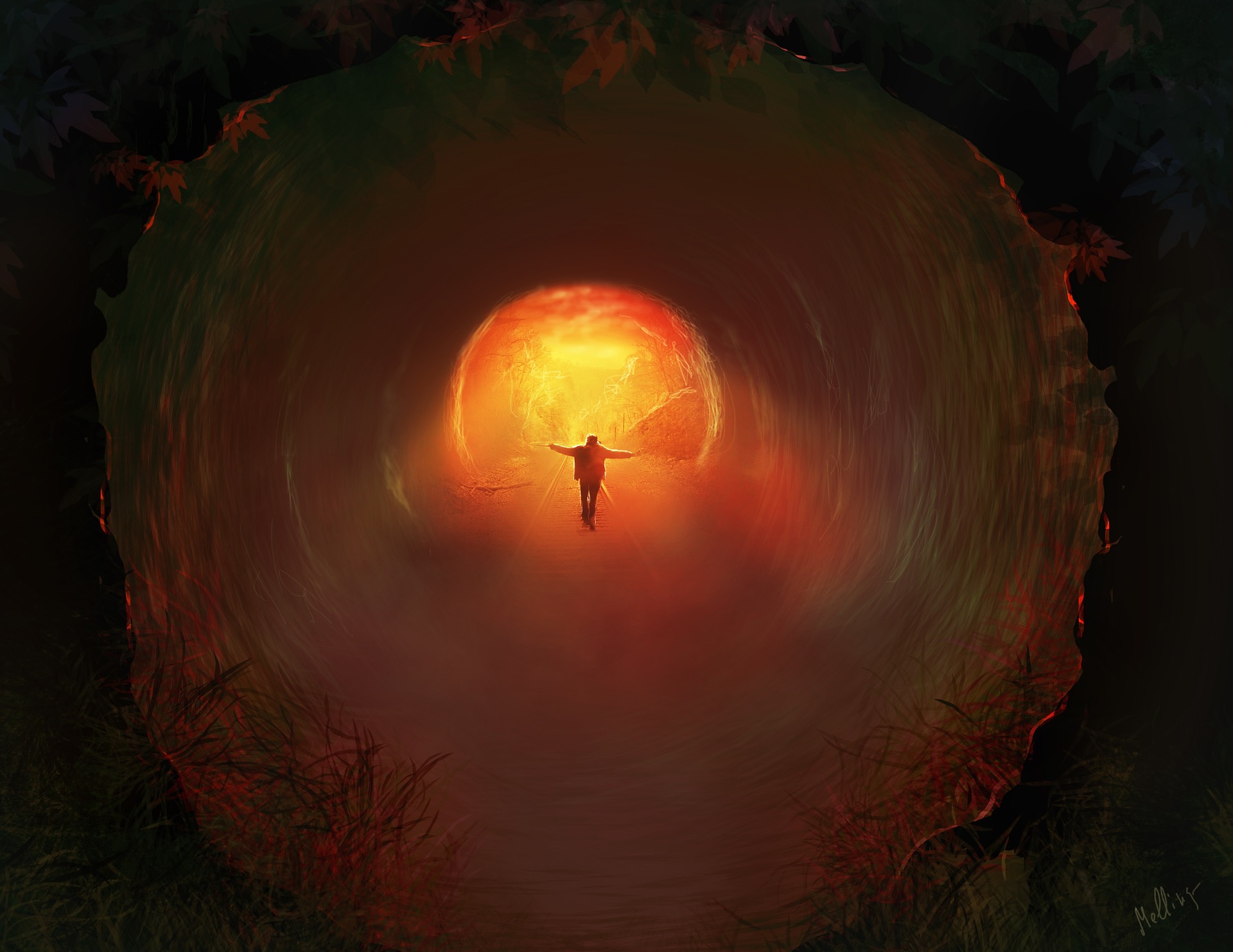
“Live a good life. If there are gods and they are just, then they will not care how devout you have been, but will welcome you based on the virtues you have lived by. If there are gods, but unjust, then you should not want to worship them. If there are no gods, then you will be gone, but will have lived a noble life that will live on in the memories of your loved ones.” ― Marcus Aurelius
In the previous quotation Marcus Aurelius, the Roman Emperor and Stoic philosopher, is expressing his belief that living a good life based on virtuous principles is more important than adherence to religious rituals or dogma.
He suggests that if there are gods and they are just, they will judge a person based on their moral character and the way they lived their life, rather than their religious practices. Conversely, if there are gods who are unjust, then there is no reason to worship them, as they are not deserving of devotion.
Lastly, if there are no gods, then the only thing that will remain after a person’s death is the memory of the life they lived, and therefore it is important to strive to live a noble and virtuous life that will be remembered by those who knew and loved them.
The fear of punishment after death is a common theme in many religious and cultural traditions throughout history. It is the idea that after a person dies, their soul or spirit will be judged by a higher power, and they will either be rewarded or punished based on their actions during their lifetime.
The belief in an afterlife, and the fear of punishment after death has been ever present within the collective psyche of humanity in all cultures and at all times. The ancient civilizations of Greece, Rome and Egypt were polytheistic, meaning that they believed in multiple gods who oversaw different aspects of life and death, and they believed that a person’s actions in life would determine their fate in the afterlife.
At the time of Marcus Aurelius, the ancient Romans believed in a complex pantheon of gods and goddesses who were believed to control various aspects of the natural world and human life. These gods were believed to have the power to punish humans after death for failing to live up to their expectations or for committing immoral acts.
Some of the gods who were associated with punishment after death include:
- Pluto: the god of the underworld who ruled over the dead and was responsible for judging souls after death.
- Nemesis: the goddess of retribution who punished those who showed hubris or arrogance.
- Orcus: the god of the underworld who punished those who broke oaths or committed perjury.
- Furies: the three goddesses of vengeance who punished those who committed crimes such as murder, perjury, and treachery.
- Saturn: the god of agriculture who was also associated with time and death. In later Roman mythology, he was associated with a myth of a “Golden Age” when humans lived in a state of perfect happiness and virtue, and his return was seen as a sign of a coming apocalypse.
The concept of punishment after death in ancient Rome at the time of Marcus Aurelius was also shaped by a variety of cultural and religious traditions, including Stoicism and the mystery cults, which had their own views on the afterlife and judgment so it’s hardly surprising that many of the world’s major religions, such as Christianity, Islam, Judaism also have teachings about an afterlife that could see you punished after death by vengeful gods and demons.
The teachings of Jesus Christ in the New Testament also emphasize the idea of judgment after death. In the Gospels, Jesus frequently speaks about the kingdom of heaven and the importance of living a righteous life to enter it. He also speaks about the reality of punishment after death, including the concept of eternal damnation in hell for those who do not repent of their sins.
The early Christian church also contributed to the development of the idea of punishment after death. In the early centuries of Christianity, there was much debate and discussion about the nature of the afterlife and the fate of the soul after death. Many early Christian writers, such as Tertullian and Augustine, believed in the reality of punishment after death and emphasized the importance of living a moral and virtuous life.
Overall, the Christian conception of punishment after death is rooted in a combination of biblical teachings, the teachings of Jesus Christ, and the early traditions of the Christian church that are a product of both its Hellenistic and Hebrew roots, reflecting the belief that human beings are accountable for their actions and will be judged by God after death. The fear of punishment after death has been used as a tool to promote moral behaviour and to deter people from committing immoral acts. It is often linked to the concept of sin, which is the idea that certain actions or behaviours are inherently wrong and will result in punishment. In some cases, this fear has been used by religious leaders and institutions to control people and maintain power.
The fear of punishment after death is a complex and deeply ingrained concept that affected Marcus Aurelius to the point where he wrote a note to himself in an attempt to find solace and lessen the weight of this fear. That’s all his meditations are, notes to himself, not meant for publication, but preserved after his death by the people he had served as emperor as a tribute and a testament to this great man.
It’s important to remember that the irrational fear of eternal punishment after death is a universal human experience and can be challenging to overcome in order to live a happy life. However, we must strive to do so. Any god that would punish a human being after death is not worthy of worship, especially considering that humans are born imperfect and make mistakes due to their lack of perfect knowledge. It’s important to also acknowledge that there is no material evidence to support the existence of gods, goddesses, or demons. All beliefs are subjective and originate in the mind, which means that when the mind dies, our existence comes to an end. This doesn’t necessarily mean that the existence of the soul is impossible, only that it cannot be found through material sciences. However, even if we are wrong about the existence of an afterlife and the likelihood of eternal punishment after death, we can still be rational and accept that such a fate is highly unlikely.
“When we are tired, we are attacked by ideas we conquered long ago.” ―
It’s worth bearing in mind, that even if we are sure of ourselves by day, it’s usually by night, when we are tired, that old ideas and beliefs, such as the fear of eternal punishment after death, come back to haunt us. The tired mind is often full of doubts, and it’s entirely natural for this to be the case. So, even if you believe in God and don’t consciously believe in eternal punishment after death, a part of your psyche, a roaming part of your subconscious mind may still do so. When this happens, it is good to consider the words and the beliefs of the mystics, those people who in times past, have sought ever greater union with God and reflect upon what they have to say on the subject.
Some mystics, such as Saint John of the Cross, emphasize the importance of purgation or purification of the soul after death. They believe that the soul must be purified of all attachment to sin and worldly desires before it can enter into union with God. This purgation may involve a period of temporary suffering or punishment, but it is ultimately a process of healing and preparation for eternal life with God.
Other Christian mystics, such as Julian of Norwich, focus on the infinite love and mercy of God. They believe that God’s love is unconditional and that all souls will ultimately be reconciled with God, regardless of their actions in life. This view emphasizes the power of divine forgiveness and the idea that God desires the salvation of all human beings.
Overall, Christian mystics tend to emphasize the importance of living a virtuous life in the present moment and cultivating a deep relationship with God. They believe that the fear of punishment after death can be overcome through a deep faith in God’s love and mercy, as well as a commitment to personal transformation and growth.

